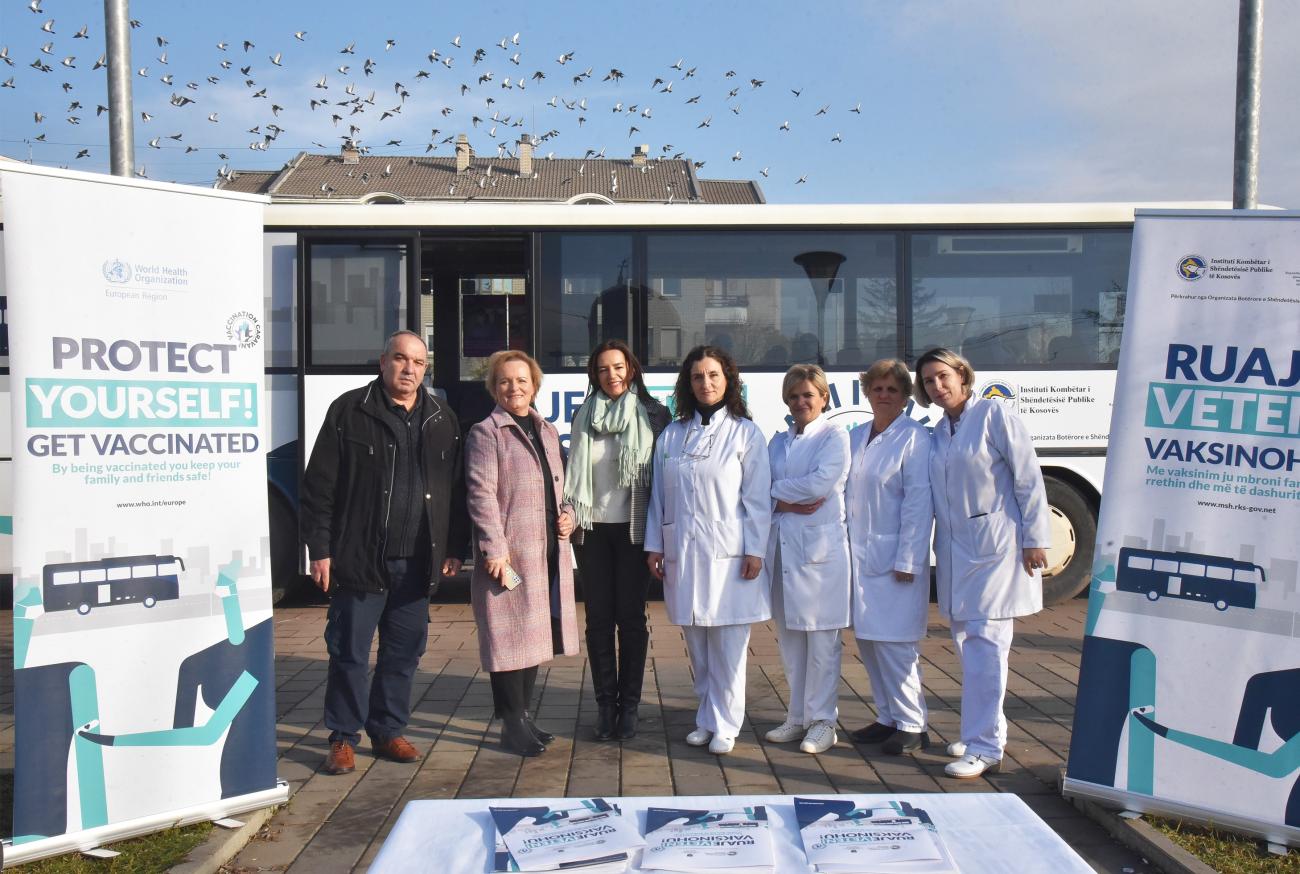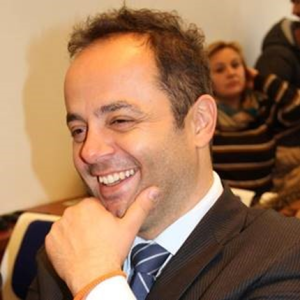The health and life prospects of Kosovo’s people are being boosted with the help of UN support. Forty-five minutes away from Shalë/Sedlare, in Obiliq/Obilić, Dr. Rejhane Zhushi Musliu is one of hundreds of health-care workers preparing to roll out a vaccine that is available in Kosovo for the first time.
From early 2024, girls in grade six across Kosovo will start receiving the human papillomavirus (HPV) vaccine, which research has indicated can cut cervical cancer rates by almost 90%. Cervical cancer is the fourth most common type of cancer in women, and more than 95% of it is caused by sexually transmitted HPV. In Kosovo, there were around 70 new cases of cervical cancer in 2023 alone.
“We will start with 15,000 units next year for girls aged 13”, Dr. Zhushi Musliu explains, adding that this covers the entire cohort in Kosovo. “It all begins with prevention, and immunization will significantly boost the health of the general population”. QUOTE:
For the first time we have the state-of-the-art facilities, capacities and vaccines. WE are contributing to public health through prevention. I am hopeful for the future!- Dr. Zhushi Musliu
The HPV vaccine, whose introduction in Kosovo was strongly advocated by the UN, is one of three new inoculations being added to Kosovo’s vaccination calendar. As announced during European Immunization Week in April 2023, it will join the rotavirus vaccine, which helps protect against the leading cause of severe diarrhea among young children, and the pneumococcal conjugate (PCV) vaccine, which is used to protect infants, young children and adults against disease caused by the bacterium Streptococcus pneumoniae.
Information materials on the vaccines for health-care workers and parents were distributed to 300 health-care workers at a conference organized by Institute for Pubcli health and supported by UN (WHO) in October 2023 to help prepare for the roll out. Dr. Rejhane believes that further outreach work will be required to help ensure that marginalized groups are aware of the new vaccines.
Arbnesha Kelmendi-Draga, an Albanian language teacher from Peja/Peć, is a cervical cancer survivor. She is grateful that her daughter and school students will have the opportunity to receive the HPV vaccine, to save them going through everything she has had to endure. QUOTE:
I have a message for all men, women, girls, and boys: Make frequent health checks because early detection saves lives- Arbnesha Kelmendi-Draga, cancer survivor
The introduction of these vaccines in Kosovo was made possible thanks to Gavi, The Vaccine Alliance, a public-private global health partnership that helps to secure access to vaccines for those that may otherwise not be able to afford them. With Kosovo’s access to this facility negotiated via the UN, it represents the first time that Gavi has made funding available to a place classified as ‘Upper Middle Income’.
The new vaccines will also make use of a state-of-the-art central storage building, which was initially handed over in June 2022, and finally completely passed on to the local authorities in June 2023 by UNOPS, as well as recently revamped mobile and fixed cold chain technology, procuredure through WHO. As an epidemiologist, Dr. Rejhane feels a sense of professional pride at the kind of long-term investments that are being made into this area of people’s health.
“The transportation has been upgraded and all family medicine centres now have brand-new cold storage units for vaccines”, she says. “The entire system became fully operational at the beginning of 2023, and we also conducted training for the staff and cold chain supervisors”.
Dr. Rejhane highlights that the new system is now fully automatic, maintaining temperature and humidity while also providing escalating alerts in case of system failures. “The first failsafe message goes to the health-care worker, then to the responsible doctor, and finally to the head of the centre”, she says. “If there’s no response after all these failsafe messages, it sends a signal to the Ministry of Health through the Health Information System”.
The positive foundations laid through both the vaccinations roll out and early childhood education form part of the UN’s joined up work under the Sustainable Development Cooperation Framework 2021-2025. Such positive steps forward help to ensure that social services such as health care, education and social protection services are more accessible, qualitative, and effective, especially for vulnerable and excluded groups.
Written in Cooperation with Jack Butcher






